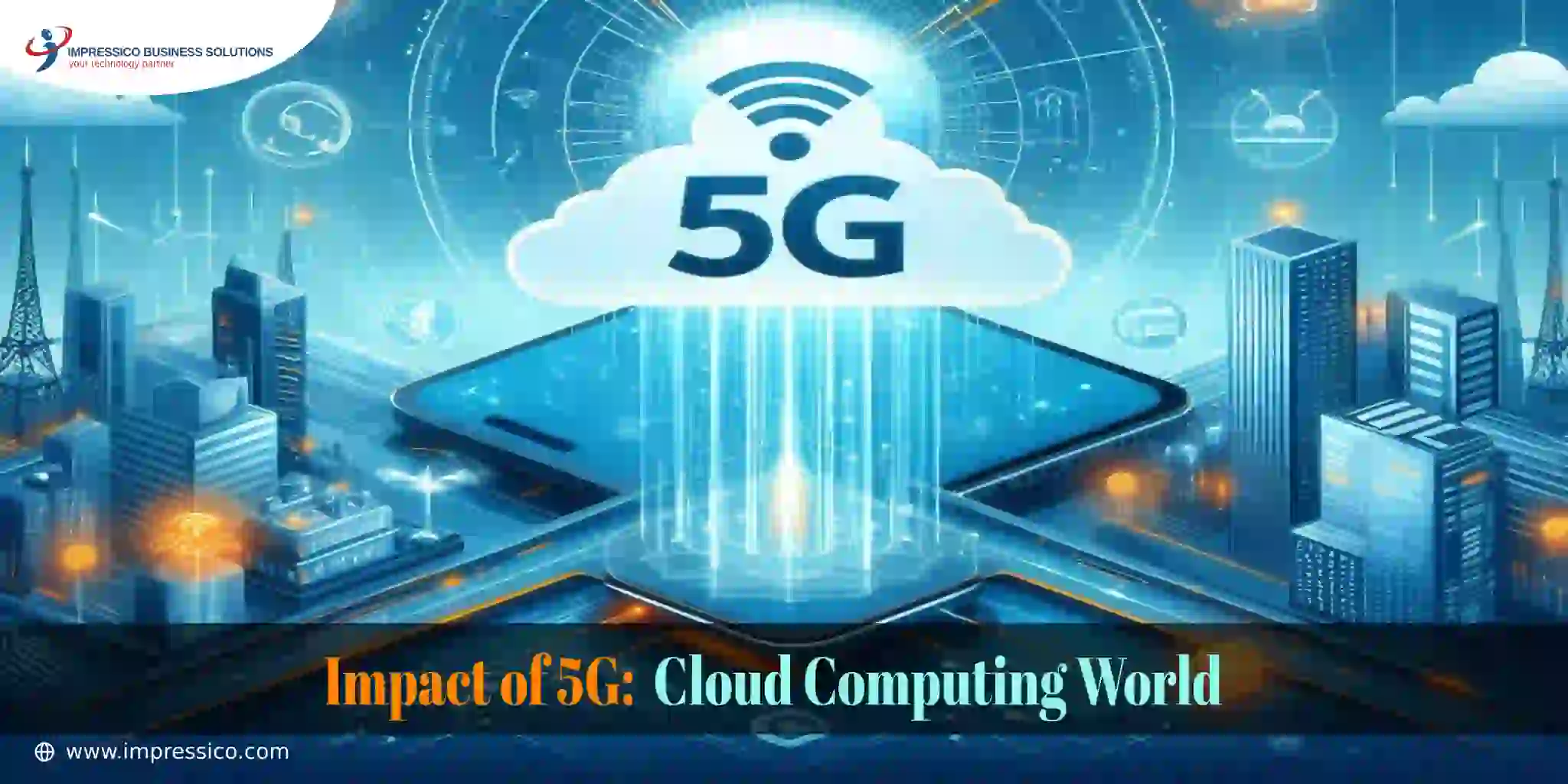Impact of 5G on the Cloud Computing World

The technology aims to remove the barriers that hold back the enterprise domain. 2020 welcomed 5G technology to test the power of unprecedented speeds that can open doors to new possibilities and potential.
The hype surrounding 5G in terms of turbo speed technology, low latency, and superior network efficiency to change the way the world used to communicate, collaborate and connect looks promising. Cloud technology is nothing more than an application-based software system that processes data through remote servers and makes this data available to users via the Internet; 5G plays an important role in the main process.
With cloud being the new normal and 5G being the new revolution, this blog will talk exclusively about how 5G will have an impact on cloud computing technology.
5G’s Speed and Cloud Efficiency
The practicalities of 5G can support today’s cloud computing environment for any business that uses cloud computing because no one can wait for buffering or latency issues to be resolved. Any company using 5G networks can transfer data faster, and even companies with geographic network issues can now easily access cloud services.
Now the 5G technology can eliminate network connectivity problems faced by the cloud industry. The ultra-low latency of 5G can improve mobile experiences and help enterprises working on client-server architectures such as cloud computing. 5G facilitates real-time streaming from facility to facility, and its lightning speed makes it easy for cloud service providers to deliver services that are more efficient, faster, and smoother than ever before.
5G, IoT, and Everything in Between
Huge amounts of data are generated every day by smart devices that require real-time processing and analytical actions. 5G gives IoT devices fast access to cloud infrastructure and enables IoT networks by maximizing signal strength and minimizing latency issues.
Organizations can use the cloud to ingest, manage, and access valuable information about data collected from a variety of sources. Network operators are sure to get a boost due to 5G’s superior functionality and flexibility. Moreover, the lower latency of the 5G IoT platform helps to deliver phenomenal results in IoT projects; Minimize development time, the market quickly, and develop IoT solutions efficiently and effectively.
The 5G, Data Analytics, and Cloud-Based Applications
Data 5G networks increase data retrieval speed and increase cloud storage space for big data to reduce analysis problems. 5G can be described as fast and curious about what has the potential to change the world of data analytics. In other words, IoT requirements tend to require solid raw data analysis, which is then converted into a well-structured format for practical information that can help companies make quick decisions. 5G will help market players around the world to develop best-in-class cloud-based applications through strong network connections.
Companies prefer cloud applications because they are inexpensive, facilitate data exchange, and strengthen security protocols. Companies trust mobile cloud applications from the customer’s point of view, which is why the widespread use of 5G makes the future of cloud applications in the corporate world profitable.
5G, Hybrid Cloud, and Cloud Security
Security has always been a major issue in the cloud context. When the cloud starts in its build phase, it also poses some of the most serious security issues. Regardless of the security situation, cybercriminals are constantly trying to break through firewalls or gain unauthorized access to hacking sensitive data stored in the cloud.
With the advent of 5G networks, organizations can closely monitor such malicious cyber attacks and take the real-time actions needed to stop these attacks before they happen. The adoption of hybrid cloud computing has increased dramatically and 5G will play an important role in keeping cloud security intact.
5G addresses latency issues, meaning businesses can migrate to public clouds for operational efficiency and scalability benefits while enabling on-premises data to be efficiently managed.
Also Read: Data Analytics and BI: Its Role in Organization’s Success
Key Takeaway
5G and cloud computing together have the power and potential to help enterprises accelerate their growth and up their game in a highly competitive market.
When we talk about the recent COVID-19 crisis, which sparked a digital revolution in the world through social distancing, strict quarantines, and unexpected blockades, cloud computing has emerged as a saviour. The cloud has made it easier for the business world to run smoothly even during a pandemic.
Meetings through video conferencing, instant messaging, instant sharing and the ability to work anytime, anywhere are made possible by cloud technology. And the cloud will get a big boost when 5G plans for cloud technology become a reality.
5G, combined with cloud computing, can accelerate any company’s operational efficiency by creating an innovation base. The key role of 5G technology along with the cloud for revolutionary changes in business models, such as remote work as a new reality in the workplace, and the awareness of the importance of a sophisticated customer experience is evident.
Bottom Line
The 5G is a welcome force in the cloud-first world as together they both aim to make the technology space more robust, and agile like never before. For the year 2021, 5G is poised to be the technology driver for which the entire world has been waiting!
Some Relevant FAQs about 5G and Cloud Computing
What is the relationship between 5G and cloud computing?
5G enhances cloud computing by providing faster data transmission, lower latency, and improved network efficiency, enabling more robust and responsive cloud services.
How does 5G impact IoT and cloud technology?
5G accelerates IoT devices’ access to cloud infrastructure, maximizing signal strength and minimizing latency, which is crucial for real-time data processing and analytics.
Can 5G improve cloud security?
Yes, 5G networks can offer more vigilant monitoring against cyber threats, allowing organizations to take proactive measures in real-time to secure their cloud environments.
Will 5G replace the need for cloud computing?
No, 5G and cloud computing are complementary technologies. 5G enhances the capabilities of cloud computing, making it more efficient and accessible.
How will 5G affect cloud storage and data analytics?
With 5G, data retrieval speeds increase, and cloud storage space expands, facilitating big data analysis and enabling companies to make swift, informed decisions.
